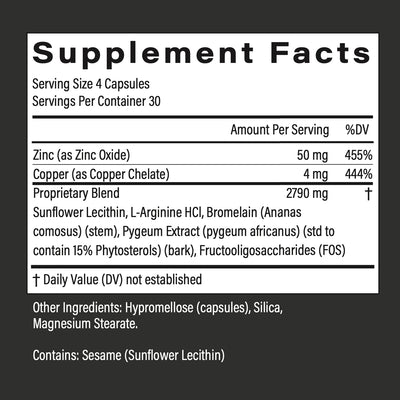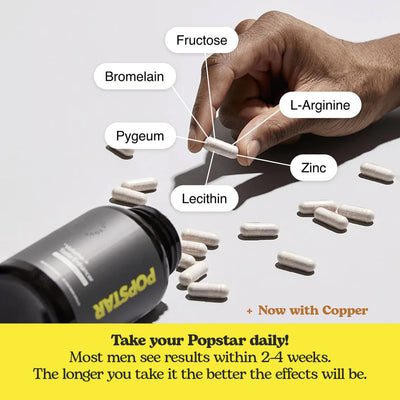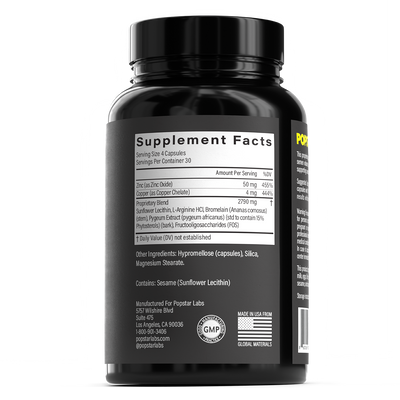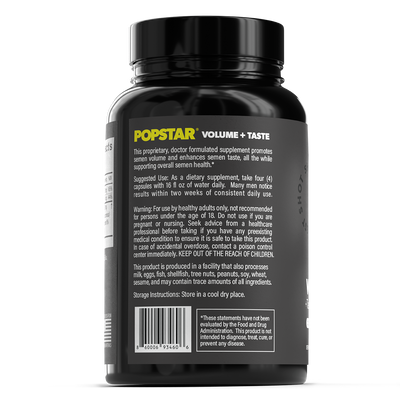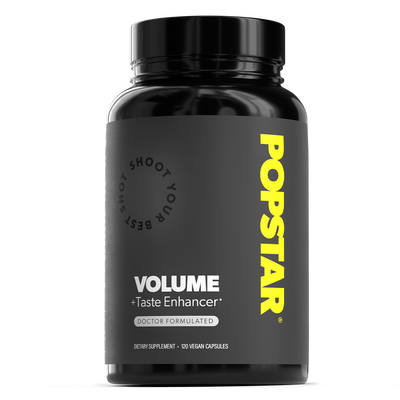In the realm of modern reproductive medicine, Intracytoplasmic Sperm Injection (ICSI) stands out as a groundbreaking technique that has revolutionized the treatment of male infertility. By enabling the direct injection of a single sperm into an egg, ICSI bypasses many traditional barriers to fertilization. This comprehensive guide delves into the intricacies of ICSI, its procedures, benefits, potential risks, and frequently asked questions to provide clarity on this advanced fertility treatment.
Table of Contents
- What Is ICSI?
- How Does ICSI Work?
- Who Are the Ideal Candidates for ICSI?
- ICSI vs. Traditional IVF: What's the Difference?
- Success Rates of ICSI
- Risks and Side Effects of ICSI
- Preparing for ICSI Treatment
- ICSI Procedure: A Step-by-Step Guide
- Frequently Asked Questions About ICSI
- Lifestyle Tips for Optimizing ICSI Success
- Final Thoughts
What Is ICSI?
Intracytoplasmic Sperm Injection (ICSI) is a specialized form of in vitro fertilization (IVF) that assists with fertilization when there are severe male fertility issues. Unlike traditional IVF, where sperm and eggs are mixed in a dish to allow for natural fertilization, ICSI involves the direct injection of a single sperm into the cytoplasm of an egg.
This technique was developed in the early 1990s and has since become a standard procedure in fertility clinics worldwide, especially for cases involving male factor infertility.
Key Takeaways
- ICSI is a micromanipulation technique used in assisted reproductive technology.
- Primarily helps couples where the male partner has very low sperm count or motility issues.
- Increases the chances of fertilization by directly injecting sperm into the egg.
How Does ICSI Work?
The ICSI process is a meticulously controlled laboratory procedure performed by embryologists using advanced equipment. Here's how it unfolds:
Step 1: Egg Retrieval
The female partner undergoes ovarian stimulation to produce multiple eggs. These eggs are then retrieved through a minor surgical procedure called transvaginal ultrasound aspiration.
Step 2: Sperm Collection
Sperm is collected from the male partner either through ejaculation or surgical extraction methods such as testicular sperm extraction (TESE) if necessary.
Step 3: Sperm Selection
Under a high-powered microscope, embryologists select a healthy, motile sperm for injection.
Step 4: Sperm Injection
Using a fine glass needle called a micropipette, the selected sperm is injected directly into the cytoplasm of the mature egg.
Step 5: Fertilization and Embryo Development
The injected eggs are then placed in an incubator to allow fertilization and embryo development. Successful embryos are monitored for growth.
Step 6: Embryo Transfer
A selected embryo (or embryos) is transferred into the female partner's uterus for potential implantation and pregnancy.
Who Are the Ideal Candidates for ICSI?
ICSI is particularly beneficial for couples facing specific fertility challenges. Ideal candidates include:
- Men with severe oligospermia (very low sperm count).
- Men with asthenozoospermia (poor sperm motility).
- Cases of teratozoospermia (abnormal sperm morphology).
- Men with azoospermia (no sperm in ejaculate) due to blockage or testicular failure.
- Couples who have had previous IVF cycles with failed fertilization.
- Presence of antisperm antibodies that affect sperm function.
- Use of frozen sperm samples that have limited viable sperm.
- Couples utilizing preimplantation genetic testing (PGT).
By directly injecting sperm into the egg, ICSI overcomes many barriers that prevent sperm from fertilizing the egg naturally.
ICSI vs. Traditional IVF: What's the Difference?
While both ICSI and IVF are assisted reproductive technologies aiming to achieve fertilization outside the body, they differ in technique and application.
Traditional IVF
- Eggs and a large number of sperm are placed together in a petri dish.
- Fertilization occurs when a sperm naturally penetrates an egg.
- Primarily used when sperm count and motility are within normal ranges.
ICSI
- Involves the direct injection of a single sperm into an egg.
- Bypasses natural fertilization barriers related to sperm count or function.
- Preferred when male infertility factors are present.
Choosing between IVF and ICSI depends on individual circumstances, and a fertility specialist can recommend the most suitable method.
Success Rates of ICSI
ICSI has significantly improved fertilization rates for couples with male infertility issues. However, success can vary based on several factors:
Factors Influencing Success
- Age of the Female Partner: Egg quality declines with age, affecting embryo development.
- Sperm Quality: Genetic integrity of sperm plays a role even when injected directly.
- Laboratory Expertise: Skilled embryologists and advanced equipment enhance outcomes.
- Underlying Health Conditions: Hormonal imbalances or uterine abnormalities can impact implantation.
On average, fertilization rates with ICSI are around 70-80%. Pregnancy and live birth rates can range from 30-50% per cycle, depending on individual factors.
Risks and Side Effects of ICSI
While ICSI is generally safe, there are potential risks and considerations:
Potential Risks
- Egg Damage: The injection process may damage a small percentage of eggs.
- Genetic Concerns: Underlying genetic issues in sperm may be passed to offspring.
- Multiple Pregnancies: Transferring multiple embryos increases the risk of twins or triplets.
- Birth Defects: Slightly increased risk of certain rare defects, though the overall risk remains low.
Side Effects
- Ovarian Hyperstimulation Syndrome (OHSS): From fertility medications causing swollen ovaries.
- Emotional Stress: The procedure can be emotionally taxing for couples.
- Financial Strain: ICSI can be costly, and insurance coverage varies.
Thorough consultation with fertility specialists and genetic counselors can help mitigate risks.
Preparing for ICSI Treatment
Proper preparation can enhance the chances of a successful ICSI cycle. Key steps include:
Medical Evaluations
- Fertility Testing: Comprehensive assessments for both partners.
- Genetic Screening: Identifying potential hereditary issues.
- Infectious Disease Screening: Ensuring safety during procedures.
Lifestyle Modifications
- Healthy Diet: Focus on nutrient-rich foods supporting reproductive health.
- Avoid Smoking and Alcohol: Both can negatively affect sperm and egg quality.
- Stress Reduction: Techniques such as meditation or counseling.
Medications
- Ovarian Stimulation Drugs: For the female partner to produce multiple eggs.
- Sperm Enhancement Supplements: For the male partner, as recommended.
ICSI Procedure: A Step-by-Step Guide
Understanding the ICSI process can help alleviate anxiety and set realistic expectations.
1. Initial Consultation
Meet with a fertility specialist to discuss medical history, testing, and treatment plans.
2. Ovarian Stimulation
The female partner begins hormone injections to stimulate egg production, monitored through ultrasounds and blood tests.
3. Egg Retrieval
Eggs are collected under sedation using a needle guided by ultrasound.
4. Sperm Collection and Preparation
The male partner provides a sperm sample, which is then processed to select viable sperm.
5. Sperm Injection
An embryologist injects a single sperm into each mature egg using micromanipulation techniques.
6. Embryo Culture
Fertilized eggs are cultured in the lab for several days to monitor development.
7. Embryo Transfer
Healthy embryos are transferred into the uterus using a thin catheter.
8. Pregnancy Test
Approximately two weeks post-transfer, a blood test determines if pregnancy has been achieved.
Frequently Asked Questions About ICSI
1. Is ICSI Safe for the Child?
Answer: Studies indicate that children born via ICSI are generally as healthy as those conceived naturally. While there is a slight increase in certain genetic and developmental issues, the overall risk remains low. Genetic counseling is recommended for couples concerned about hereditary conditions.
2. Can ICSI Address All Types of Male Infertility?
Answer: ICSI is effective for many male infertility issues, including low sperm count, poor motility, and abnormal morphology. However, it may not overcome genetic problems affecting sperm development. A thorough evaluation is necessary to determine suitability.
3. How Many Eggs Are Needed for ICSI?
Answer: The number of eggs retrieved can vary, but having multiple eggs increases the chances of fertilization and viable embryos. Typically, fertility specialists aim to retrieve between 10 to 15 mature eggs.
4. What If No Sperm Is Found in the Ejaculate?
Answer: In cases of azoospermia, sperm may be retrieved directly from the testicles using surgical procedures like TESE or percutaneous epididymal sperm aspiration (PESA). These methods provide sperm for use in ICSI.
5. Does ICSI Increase the Risk of Multiple Births?
Answer: The risk of multiple births is linked to the number of embryos transferred. Transferring multiple embryos can increase the chances of twins or triplets. Many clinics now recommend single embryo transfers to reduce this risk.
6. How Much Does ICSI Cost?
Answer: The cost of ICSI can vary widely based on location, clinic, and individual treatment plans. On average, ICSI adds several thousand dollars to the cost of a standard IVF cycle. Insurance coverage differs, so it's essential to consult with providers regarding expenses.
7. Are There Alternatives to ICSI?
Answer: Alternatives may include traditional IVF or intrauterine insemination (IUI) if conditions are suitable. For some genetic issues, using donor sperm might be recommended. A fertility specialist can advise on the best options.
8. How Long Does the ICSI Process Take?
Answer: From the start of ovarian stimulation to the pregnancy test, a typical ICSI cycle lasts about 4 to 6 weeks. This timeline can vary based on individual protocols and responses to medications.
9. Can ICSI Be Used for Gender Selection?
Answer: While ICSI itself doesn't allow for gender selection, it can be combined with preimplantation genetic testing (PGT) to determine the sex of embryos. Ethical and legal considerations vary by country and clinic policies.
10. Is Lifestyle Modification Necessary During ICSI Treatment?
Answer: Adopting a healthy lifestyle is encouraged. This includes a balanced diet, avoiding alcohol and smoking, reducing stress, and following medical advice to optimize treatment outcomes.
11. Does ICSI Affect Future Fertility?
Answer: ICSI doesn't typically impact future fertility. Any effects would more likely result from underlying fertility issues rather than the procedure itself. Continuous medical support can help address ongoing concerns.
12. What Happens to Unused Embryos?
Answer: Unused embryos can be frozen for future use, donated for research or to other couples, or disposed of according to the couple's wishes and clinic policies. Decisions about unused embryos should be discussed in advance.
13. Are There Any Age Limits for ICSI?
Answer: There's no strict age limit, but fertility declines with age, especially for women over 40. Success rates decrease, and risks may increase. Fertility specialists can provide personalized assessments based on age and health.
14. Can Single Individuals or Same-Sex Couples Use ICSI?
Answer: Yes, ICSI can be part of fertility treatments for single individuals or same-sex couples, often involving donor eggs or sperm and gestational carriers where necessary. Legal and ethical considerations should be reviewed.
15. What Emotional Support Is Available During ICSI?
Answer: Fertility treatments can be emotionally challenging. Many clinics offer counseling services, support groups, and resources to help couples navigate the emotional aspects of the journey.
Lifestyle Tips for Optimizing ICSI Success
While medical procedures are critical, lifestyle factors can also influence ICSI outcomes.
For the Male Partner
- Maintain a Healthy Weight: Obesity can affect sperm quality.
- Avoid Heat Exposure: Limit use of hot tubs and saunas.
- Limit Toxins: Reduce exposure to pesticides and heavy metals.
- Balanced Diet: Focus on antioxidants found in fruits and vegetables.
- Exercise Regularly: Enhances overall health but avoid overtraining.
For the Female Partner
- Healthy Nutrition: Include foods rich in folic acid and iron.
- Moderate Exercise: Activities like walking or yoga can be beneficial.
- Stress Management: Practices such as mindfulness or therapy.
- Avoid Harmful Substances: No smoking, alcohol, or illicit drugs.
- Follow Medical Advice: Adhere to medication schedules and appointments.
Couples Together
- Communicate Openly: Share feelings and concerns with each other.
- Seek Support: Join fertility support groups or counseling.
- Stay Informed: Educate yourselves about the process and options.
- Plan Financially: Budget for treatment costs and consider financing options if needed.
Final Thoughts
Intracytoplasmic Sperm Injection (ICSI) represents a significant advancement in reproductive medicine, offering hope to couples facing complex infertility challenges. By understanding the procedure, potential risks, and success factors, individuals can make informed decisions on their journey toward parenthood.
ICSI requires a combination of medical expertise, technological precision, and personal commitment. Collaborating closely with fertility specialists and embracing supportive lifestyle choices can optimize outcomes. Remember that each fertility journey is unique, and while ICSI opens doors, it's essential to approach the process with realistic expectations and compassionate support.
This comprehensive guide aims to provide valuable insights but is not a substitute for professional medical advice. Consult with qualified healthcare providers to explore personalized treatment options and to address any specific questions or concerns.





























